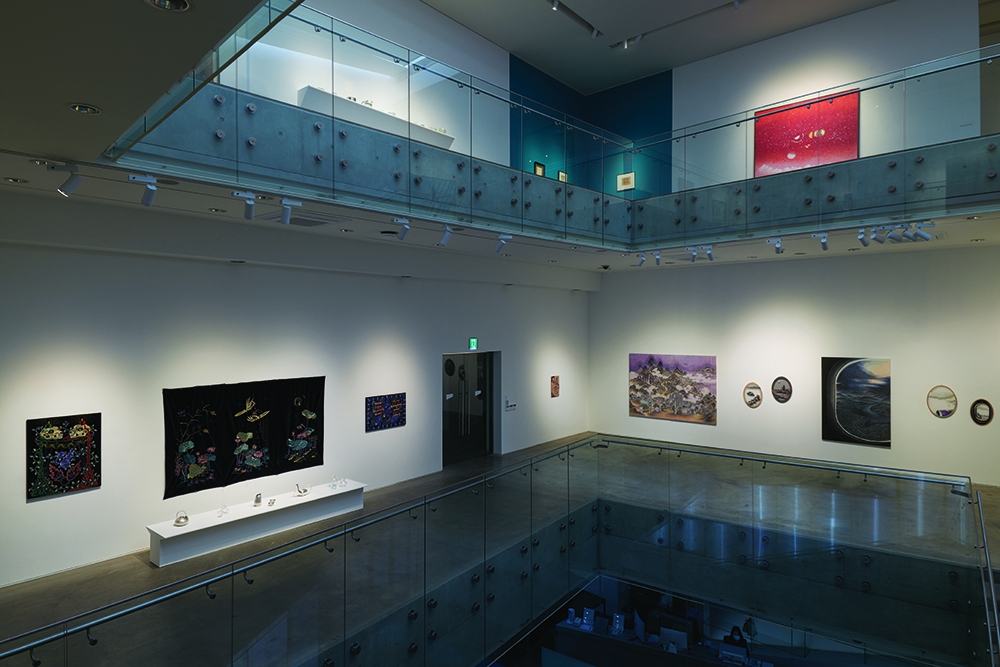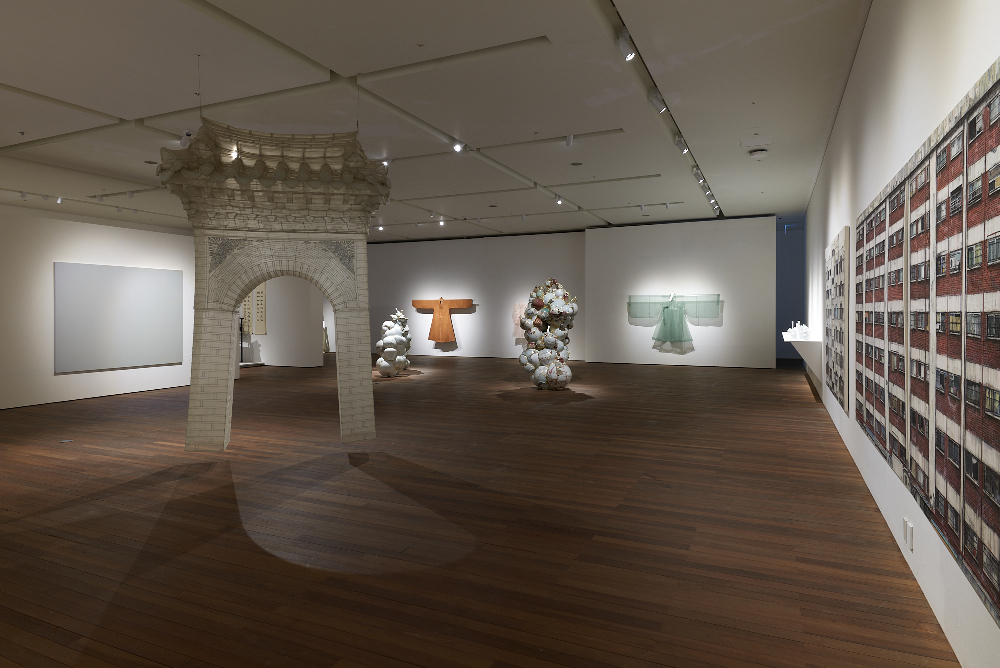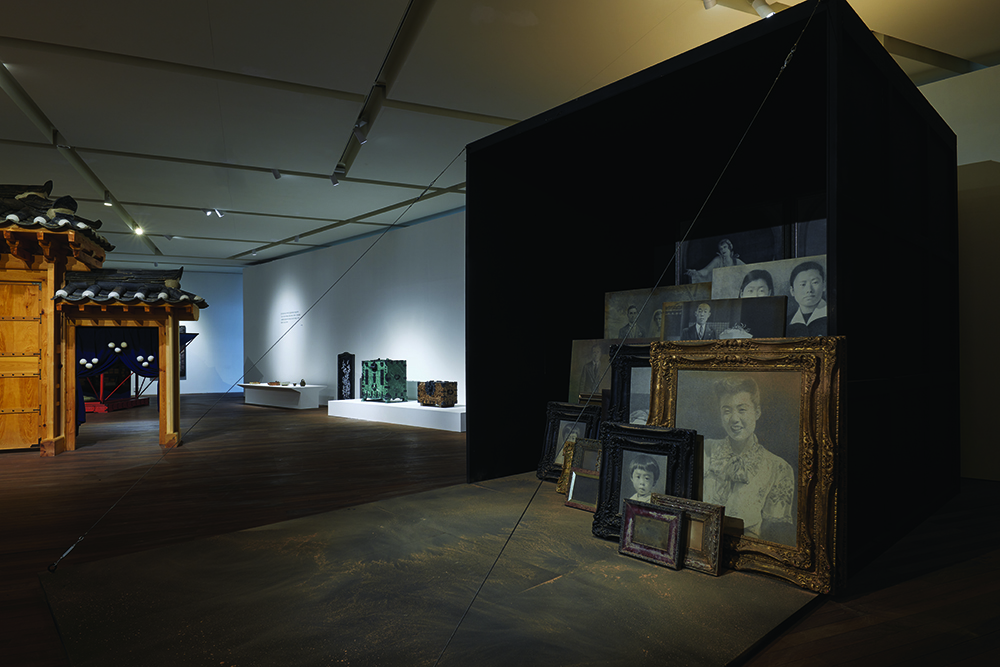Time States - Contradiction and Accordance
Toward Eigenzeit
The result of blindly pursuing newness is the extinction of Eigenzeit, one's own time. Eigenzeit refers to the time related to a specific period of life, leading from childhood, through adolescence, adulthood, old age, and ultimately death, which is captured through life experiences. The obsession with newness, new feelings and perceptions is in a dialectical relationship with the extinction of Eigenzeit. The more one is attached to new things, the poorer one becomes in terms of time, and the more one’s time is impoverished, the one is attached to new things. As this process progresses, it becomes impossible to contemplate the inexpressible transcendent meaning contained in what already exists and what has been found. While newness may be a blessing for the mass production economy, it is the main cause that has made art so impoverished today. This is the reason for Simone Weil to say “My total lack of talent which makes such a desire out of the question for me is a great favor I have received”.
It should also be clear that boredom is not caused by fatigue from the past. Rather it arises from a lack of novelty or new experiences. It is not about the past. Kierkegaard is correct. “The old is a daily bread that makes us satisfied with happiness. The old gives us happiness.” Daily bread does not momentary fading charm, but we cannot live without it. Tradition is also in the same context. They are like roads. A road does not cause boredom. The more you walk on the same road, the more precious it becomes. A road does not get tired of repetition. In contrast, imagine going to an unknown road every time. However, we are just addicted to novelty, charm, excitement, and entertainment. It is also a proof of being oppressed by the coercion of the consumer economy of this era. Yet, past is like a panacea. Using the past as a sedative to alleviate the pain of the present and the uncertainty of the future, is more harmful than forgetting. If that is the purpose, it is better not to summon the past. Such a past exists only in imagination.
Time States – Contradiction and Accordance, a co-organized exhibition by Arumjigi Culture Keepers Foundation and Seoul National University Museum of Art, was planned to seek inspiration that will illuminate the path of civilization, not only from our traditions, values and wisdom that are ingrained in our consciousness but also from today’s life and art. The collaboration was made possible by shared resonance that acknowledges the need to go back to the past to find the light that leads to the cave of the present. I am pleased to have embarked on this fascinating time travel with the Arumjigi Culture Keepers Foundation, a venerable institution. I express our gratitude to Director Yun Gyun S, Hong, the chairperson, who spared no effort in providing valuable advice and cooperation, as well as to the curators and personnel involved. We extend the same gratitude to the participating artists who joined us on this journey. I also thank the staff of the curatorial department and administrative department of the museum.
Sim Sang Yong
Director of Seoul National Museum of Art
Media: Around 170 works including paintings, moving images and sculpture
Artists: Jiang Shao Qing, Kwon Dae Seop, Kwon Chang Nam, Kim Mi Ra, Kim BoMin, Kim Seong Cheol, Kim Sooja, Kim Yong Hoe, Kim Il Woong, Kim Tai Ho, Dabal Kim, Ryu Sungsil, Moon Young Min, Moon Hye Jin, Park Seo Hee, Park Soung Chuel, Park Jina, Paik Nam June, Suh Do Ho, Suh Yongsun, Shin Gyeong Gyun, Sim Hyeon Seok, Yang Yoo Wan, Yang Haegue, Yeo Byong Uk, Oh Ji Eun, Woo Deokha, Yoo Hee Song, Yun Suknam, Lee Kang Eien, Lee Gang Hyo, Lee Geon Min, Lee Kyung Sun, Lee Kyung A, Rhee Seundja, Yee Soo Kyung, Yi Yoonshin, Lee Eun Bum, Yi Insun, Lee In Chin, Lee Jong Sang, Lee Jun-ho, Chang Ucchin, Jung Yu Ri, Jeong Eun Mi, Jung Jae Ho, Chung Jea Hyo, Cho Duck Hyun, Cho Jae Ryang, Cho Chang Geun, Cho Haeree, Choi Ji Kwang, Ha Dong chul, Han Jeong Yong, Huh Sang Wook, Hwang Kap Sun







